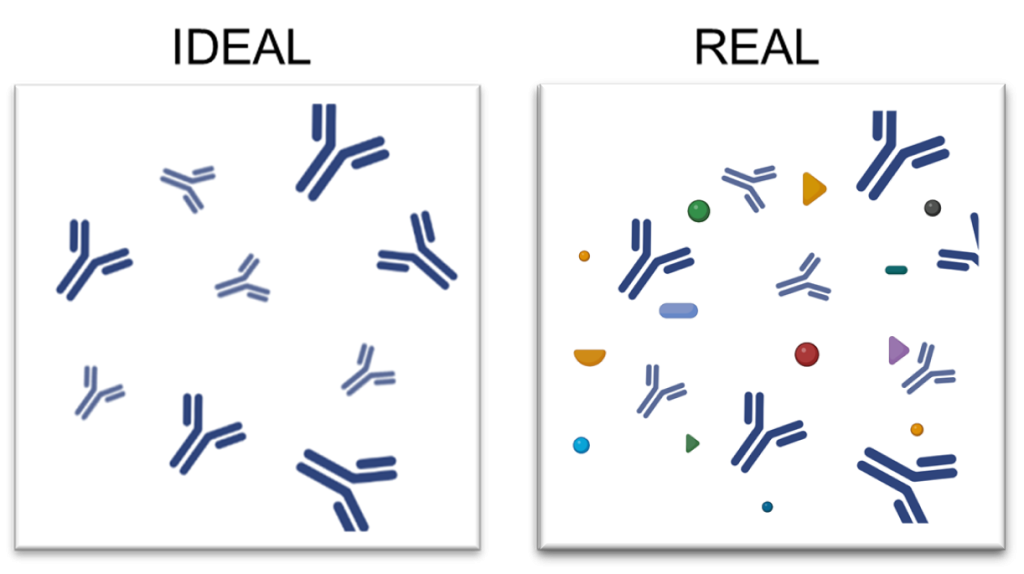Host Cell Proteins (HCPs)

Host cell proteins (HCPs) are a major category of process-related impurities of therapeutic proteins produced in bacterial (e.g E. coli) or mammalian cells (e.g. CHO or HEK293). Specific HCPs can impact product quality (e.g. proteases, lipases) and/or patient safety (e.g. cytokines), thus necessitating their control and removal. Extensive efforts have been directed towards addressing these challenges in cell line development (e.g. knock-out or knock-down cell lines), upstream process (e.g. cell viability, culture duration or temperature) and downstream process (e.g. post-load wash buffer additives). Previously proposed mechanisms based on HCP-drug association or leaching from chromatin heteroaggregates contribute to co-purification of HCPs with the therapeutic protein. In a collaboration project with Novartis Pharma AG, we discovered an additional mechanism for HCP co-elution during chromatography involving protein-protein interactions within functional networks. In addition, we assessed the immunogenic potential of high-risk HCPs that may threaten patient safety. These findings contribute to a better understanding of HCP-related challenges and inform strategies to ensure product safety and efficacy.
Click here to learn more: